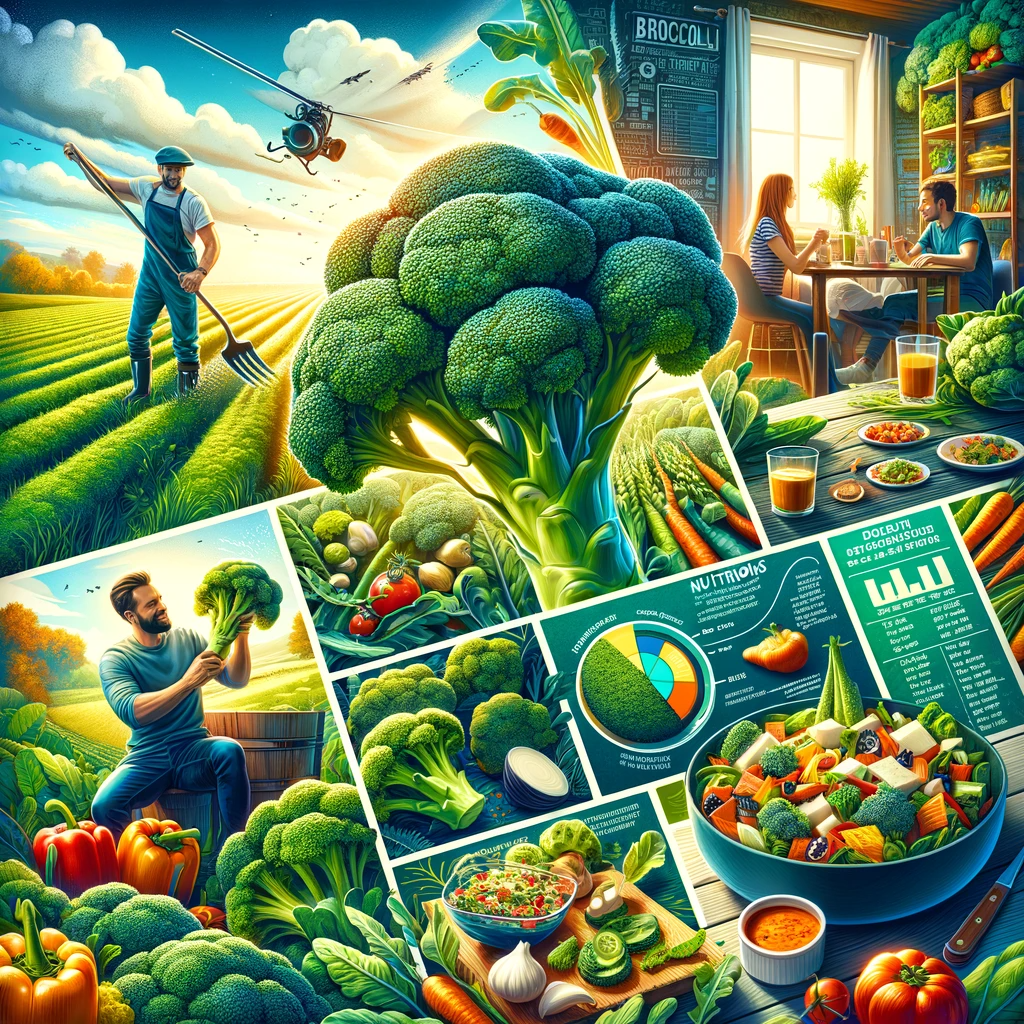In our quest for eternal youth, we often overlook the importance of nutrition in promoting healthy aging. While there’s no magical elixir to halt the aging process completely, a balanced diet rich in essential nutrients can significantly impact our well-being as we grow older. Among the myriad of superfoods available, broccoli stands out as a true powerhouse in the fight against aging. In this article, we’ll explore the various ways in which the ingredients found in broccoli contribute to healthy aging.
1. Antioxidants in Broccoli
Broccoli is a nutritional powerhouse primarily due to its high antioxidant content, which plays a pivotal role in combating the signs of aging. Antioxidants are compounds that neutralize harmful free radicals, preventing oxidative stress and cellular damage. The key antioxidants found in broccoli include:
a. Vitamin C: Broccoli is loaded with vitamin C, an antioxidant that supports collagen production, skin elasticity, and immune function. It helps protect the skin from wrinkles and damage caused by UV radiation.
b. Beta-carotene: This antioxidant is converted into vitamin A in the body and promotes healthy vision and skin. It also helps fight age-related macular degeneration.
c. Quercetin: Quercetin, another antioxidant in broccoli, possesses anti-inflammatory properties, reducing the risk of chronic diseases associated with aging.
2. Sulforaphane: The Anti-Aging Compound
One of the most remarkable compounds in broccoli is sulforaphane. This bioactive phytochemical has gained significant attention in recent years for its potential anti-aging effects:
a. Cellular rejuvenation: Sulforaphane can stimulate a process called autophagy, in which cells clean out damaged components. This promotes cell renewal and longevity.
b. Detoxification: Sulforaphane aids the body’s natural detoxification processes, helping eliminate harmful substances and reducing the risk of age-related diseases.
c. Brain health: Emerging research suggests that sulforaphane may have neuroprotective properties, potentially delaying cognitive decline associated with aging.
3. Fiber and Digestive Health
Broccoli is an excellent source of dietary fiber, which is essential for maintaining a healthy digestive system, especially as we age. Fiber provides several benefits:
a. Regularity: A high-fiber diet helps prevent constipation, a common issue among older adults, and promotes regular bowel movements.
b. Gut microbiome: Fiber supports a diverse gut microbiome, which is linked to overall health and a reduced risk of chronic diseases.
c. Weight management: Fiber helps control appetite and may aid in weight management, which is crucial for maintaining overall health in older age.
4. Bone Health and Broccoli
As we age, bone health becomes a top priority. Osteoporosis and fractures are more common among older adults, but the nutrients in broccoli can help:
a. Calcium: Broccoli contains a significant amount of calcium, vital for maintaining strong bones and preventing osteoporosis.
b. Vitamin K: This vitamin plays a crucial role in bone metabolism and helps prevent age-related bone loss.
5. Heart Health and Aging
Cardiovascular health is another concern as we age, but broccoli can be a valuable ally:
a. Cholesterol management: The fiber and antioxidants in broccoli may help lower LDL (bad) cholesterol levels, reducing the risk of heart disease.
b. Blood pressure: Potassium, found in broccoli, can help regulate blood pressure, which is essential for heart health.
6. Easy Ways to Include Broccoli in Your Diet
Incorporating broccoli into your diet doesn’t have to be a chore. Here are some delicious ideas:
a. Roasted broccoli: Toss broccoli florets with olive oil, garlic, and your favorite seasonings, then roast until tender and slightly crispy.
b. Broccoli soup: Make a creamy broccoli soup with low-sodium broth, onions, and a dash of nutmeg for a comforting meal.
c. Broccoli salad: Combine raw broccoli florets with cherry tomatoes, red onions, and a tangy vinaigrette for a refreshing side dish.
Conclusion
In conclusion, broccoli’s array of essential nutrients, antioxidants, and bioactive compounds makes it a powerful ally in the pursuit of healthy aging. Including broccoli in your daily diet can help protect your cells, support your bones, promote heart health, and contribute to overall well-being as you gracefully embrace the later stages of life. Remember, aging is a natural process, but with the right ingredients, it can be a vibrant and fulfilling journey. So, don’t forget to include broccoli in your meals and let it be your secret weapon against the passage of time.
